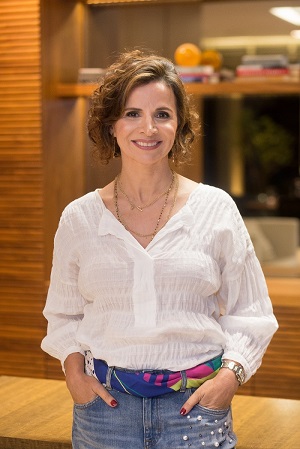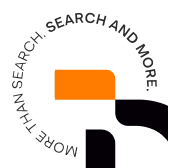A new self
Within the complex process of creating new professions, how can young and senior executives stay relevant?
We have few certainties in life, but one of them, without doubt, is the need to be prepared for change. It is inevitable, and proof of this has been the year 2020. We have been constantly faced with major transformations that are shaping our lives and especially our way of thinking and positioning ourselves in the job market.
According to “The Future of Jobs” annual report, recently released by the World Economic Forum (WEF), the Covid-19 pandemic is accelerating the processes of change and adoption of new technologies on several fronts, such as the automation of processes – which is expected to lead to the end of millions of jobs. Of the large companies surveyed for this study, more than 40 percent plan to reduce their workforce due to the adoption of technologies. The estimate contained in the report is that, by 2025, there will be a shift in the division of tasks between humans and machines and this will affect the entire work landscape as we know it.
In this context, you as a senior executive or even a young professional entering the market must be asking yourself: how can I prepare myself for the workplace of the future? The key words are: qualification and requalification. The WEF report reveals that almost 50% of professionals who will remain in their jobs in the next five years will need retraining. Most employers recognize the value of upskilling their workforce – 66% expect a return on this investment within a year, and also expect to reallocate 46% of workers within their own organization.
Continuous Development
According to Vera Lúcia, general manager of human and organizational development at Samarco, formal school systems, from basic education to graduate studies, are no longer sufficient to prepare people, keep them updated, competitive and productive. Therefore, continued education throughout life, or lifelong learning, based on diverse learning experiences (formal and informal), should be the path to this qualification or requalification. Learning to learn, relearning and unlearning are essential skills for the 21st century.

Vera Lúcia – General Manager of Human and Organizational Development at Samarco Photo: Marcus Desimoni / NITRO
“Learning can and should occur outside the classroom, on the job, with experimentation at the workplace, taking on increasing responsibilities, and through the exchange of experiences with other colleagues and areas, in a collaborative way, being open to feedback, mentoring and coaching. Actions for improvement in the virtual environment also become effective possibilities for interaction and exchange between colleagues, and bring results that are as satisfactory as the face-to-face ones. Another good development option is what we call personalized learning, when the person uses their autonomy to choose what they consider to be the most relevant content for themselves, as well as the way it is passed on: podcasts, videos, texts, TED talks, webinars. And a tip that I consider golden is to practice, take the learnings to the work environment, and even share all the learned content”, she explains.
Vera also considers that, regardless of the business or sector, the market will follow in a volatile, uncertain, complex, and ambiguous context, and will undergo intense and profound transformation, such as the GIG Economy, the greater use of artificial intelligence, the flexibilization of work, and the presence of more diverse collaborators, pushing people to rethink their ways of performing their tasks and relating to each other. “Reskilling, Upskilling and Lifelong Learning are terms that will be present in this reality, challenging the fields of human development and especially professionals, whether young or senior executives, and will be essential conditions for survival in the future of work.”
For Daniel Rezende, director of Dasein, with the advance of technology, there are chances that professions will disappear or diminish a lot in the future, especially those that are very manual, repetitive and do not involve interaction, creativity and problem solving. For this reason, he recommends that professionals seek to renew themselves, expand their knowledge, obtain new insights, and be good at what they do and have chosen as a profession. “Technology influences people’s consumption and behavior, and therefore, activities or professions that require creativity and social contact will always exist, even with technological advancement.”

Rafael Isaac – Responsible for leading the new business department at CEI Energética Photo: Communication CEI Energética
In the vision of the executive Rafael Isaac, responsible for the new business department at CEI Energética, this new labor market scenario will demand more speed from young people to develop their careers, but, on the other hand, will bring a wide range of opportunities to be explored, such as new markets, products, specialized services, and a series of demands. But the point that he considers most relevant are the adaptations in interpersonal relationships. “This whole whirlwind of change will also require changes in the way of connecting and communicating with people, whether physical or virtual contact. Having a genuine purpose, accompanied by a good dose of caring about others, will be fundamental for the full development of a long-term career,” he adds.
Mutual Efforts
Receiving the right training and acquiring the agility needed in the workplace are crucial challenges for professionals around the world. In an interview with CNBC, the director general of the World Economic Forum, Saadia Zahidi says that ensuring that everyone has the right kinds of skills for the future will require a joint effort on the part of businesses, government, and workers themselves.
Vera Lúcia, from Samarco, backs up Zahidi’s statement. “Learning and development are strategic investments for companies and leaders, since the ability of teams to understand and be protagonists in this context is an important factor for the competitiveness and, also, attractiveness of companies. It is essential that organizations analyze and understand the scenarios to identify emerging knowledge, competencies and skills that will be necessary to sustain their strategies. The result of this examination should subsidize the mapping of critical positions and knowledge and, at the same time, be translated into corporate development plans. In addition, it will be up to the institution, through the HR and leadership departments, to create a culture and a collaborative environment, favoring networking and providing the best experience for individuals in the process.”
Director of Dasein, Daniel Rezende, agrees that it is up to the companies to guide and prepare their employees for the changes and innovations, provide the appropriate environment for the technologies to flourish and keep in mind that investing in the human element will continue to be the key factor to prosper. On the other hand, he makes a warning: “each individual must seek self-development and more than mastering the digital world, needs to keep up with the speed of change and adopt new behaviors and ways of thinking and acting.”
Less pressure, more psychological security
Critical and analytical thinking, active learning, and the ability to solve complex problems are considered core competencies in a candidate by large companies in the next five years, reveals “The Future of Jobs” report. However, considering the pandemic disruption in our routines, companies will also look at skills in self-management, stress tolerance, resilience, flexibility, and emotional intelligence. In professions where dealing with people of all backgrounds is a basic requirement, the report highlights the continued importance of human interaction in the new economy.

Daniel Rezende – Dasein Director Photo: Personal archive
Some organizations, according to Adriana Prates, CEO of Dasein, are already well aware of these changes. She cites, for example, Ambev – which has just established its mental health board, and Google which, after a decade of research, concluded that the secret ingredient of high-performance teams is not the pressure for results, but psychological security. “This demonstrates an understanding that it is much more strategic to consider people in their entirety. It’s a concrete step in the sense that there is an understanding that innovation involves personnel management.”
Adriana stresses that it is indisputable that individuals who work under more humanized conditions, respecting breaks and at a pace that is compatible with reality, are more insightful, collaborative, and are able to balance themselves by bringing the positive energy of well-being they have at home into the companies. “There is no longer room for the industry of radicalism. Professionals have become inquisitive, aware of their value, and when looking for a relocation, they study the organizational culture in depth, so that they go to companies that are taking evolutionary steps in relation to personnel management, taking people’s reasons, emotions, and career aspirations into account.”
Values and attributes such as collaboration, inspiration, compassion, collective work, hospitality, solidarity, caring for others, the ability to listen, vulnerability, intuition, and empathy are all considered by Vera Lúcia. She also adds communication and emotional intelligence, in the sense of knowing how to think, feel, and act consciously and in balance with emotions and feelings. “Finally, I would also include positivity as the ability to use tactics and strategies to overcome setbacks and achieve goals. More than ever, these values and competencies represent a strategic capital for people and companies. Therefore, they need to be cultivated and stimulated,” she concludes.
Renewal at hand
Adriana Prates, CEO of Dasein, contributes with some more tips for those who want to be relevant in this new scenario. Read on:

Adriana Prates – CEO of Dasein and AESC advisor for Latin America Photo: Camila Rocha
1-Have a continuous education agenda;
2-Participate in forums in your field and in other segments that are often not directly related to your education;
Seek emotional and work-life balance, and have a structured life;
3-Take care of your health. Only those who love themselves are able to love their coworkers and, in this way, contribute for the relationships that flow;
4-Define what success is for you. Don’t be guided by other people’s definitions of success, which most of the time only brings frustration and dissatisfaction;
5-Have a support network. Friends, family, psychotherapists, pets, and any others that may be necessary.
“Finally, the message I want to send is that authenticity should be perceived as a strategic value for the human being. Hopefully everyone can understand how to contribute to a more just and humanitarian society. The necessity to rethink the way we currently live and use the present day to make the appropriate changes. Tomorrow is always too late.”



